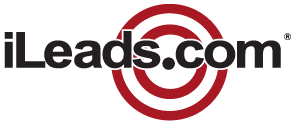When using a cash-out refinance to pay off debt, make sure you are not at risk of running up that debt again.
In a cash-out refinance mortgage, you take a loan against your home in excess of what you owe, leaving you with cash available to spend. Adding to the debt against your home could be a smart move if the cash is used for the right purpose.
Using it for the wrong purpose, however, could lead to financial distress. “I’ve seen borrowers use the cash-out option, spend the money quickly and end up in a worse situation because of it,” says Bruce McClary, National Foundation for Credit Counseling vice president of communications and U.S. News contributor.
How Does a Cash-Out Refinance Loan Work?
Like other mortgages, a cash-out refinance is a loan secured by a piece of real estate, and is subject to various requirements and limitations. The major factors considered in a cash-out refinance mortgage application are:
Loan-to-value ratio. The loan may not exceed a maximum loan-to-value ratio. That means your total home debt can’t exceed a certain percentage of the value of your home. You will need equity in the home before you can take cash out.
Debt-to-income ratio. You must show the lender, usually via tax returns, a schedule of debts and pay stubs, that you can afford to make the monthly payments.
Credit score. All borrowers named on the loan must have a credit score that meets the minimum for the loan program and lender.
Cash-Out Refinance Loan Costs
A cash-out refinance loan incurs costs similar to those for your original mortgage. Certain fees are standard, and others are common but may vary. Cash-out refinance costs may include:
Origination fee: This is the fee the lender charges for making the loan.
Title search: It is performed to ensure the person claiming title to the property is the rightful owner.
Title insurance: The policy offers protection to the lender and owner from claims against the property.
Appraisal: An appraiser determines the market value of the property.
Discount points: Fees can be paid upfront in exchange for a lower interest rate on the loan.
Application fee: You pay this fee to apply for the cash-out refinance loan.
Credit report fee: The lender charges this to pull your credit report.
Document fees: These pay for preparing, notarizing and recording loan documents.
Borrowers can pay closing costs out of pocket or add them to the loan balance. In a no-cost refinance loan, the lender pays the fees – but you likely pay a higher interest rate.
Benefits of Cash-Out Refinance Loans
A clear benefit of a cash-out refinance loan is, well, you get cash.
If you use the cash to pay off higher-interest debt, you’re likely to see an improvement in your credit score as soon as revolving debts are paid off or paid down. You may save money on interest charges or relieve stress on your budget by lowering your total monthly debt payment.
Why You Might Want to Take a Cash-Out Refinance Loan
Nathalie Martin, associate dean for faculty development at the University of New Mexico School of Law, consumer law researcher and consumer credit advocate, says the best reason to refinance is to save money, such as by lowering the interest rate, and the best reason to turn equity into cash is to do necessary maintenance or make quality-of-life home improvements to the home. “If you can still afford the loan, a remodel is probably a good use for the cash, because you’re adding value to the home,” she says.
McClary says that furthering your own education can also be a good use of the cash. “If you use the money to put yourself through a professional training program that improves your marketability and leads to jobs with higher income potential, that could be a good investment,” he says.
Another reason to refinance and access the cash in your home is paying off higher-interest debt.

